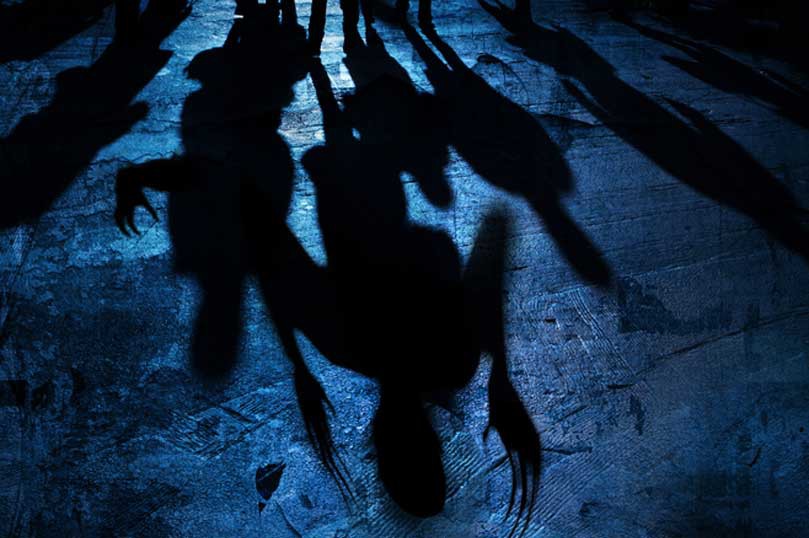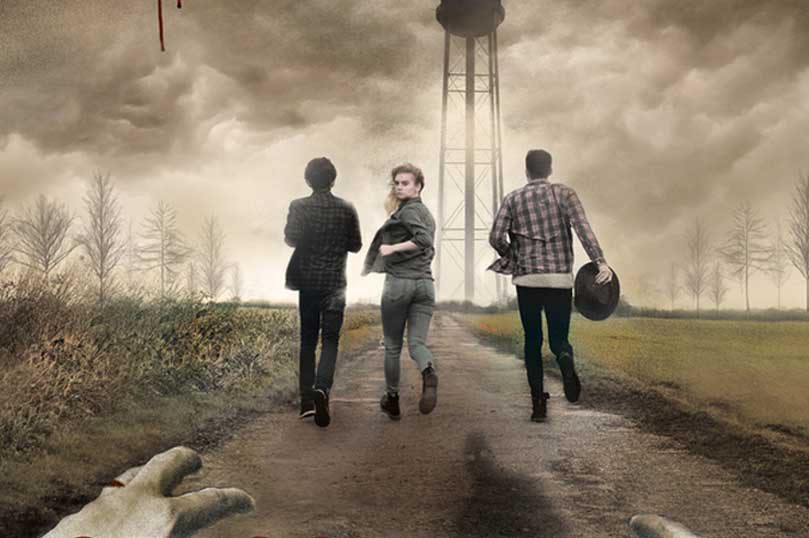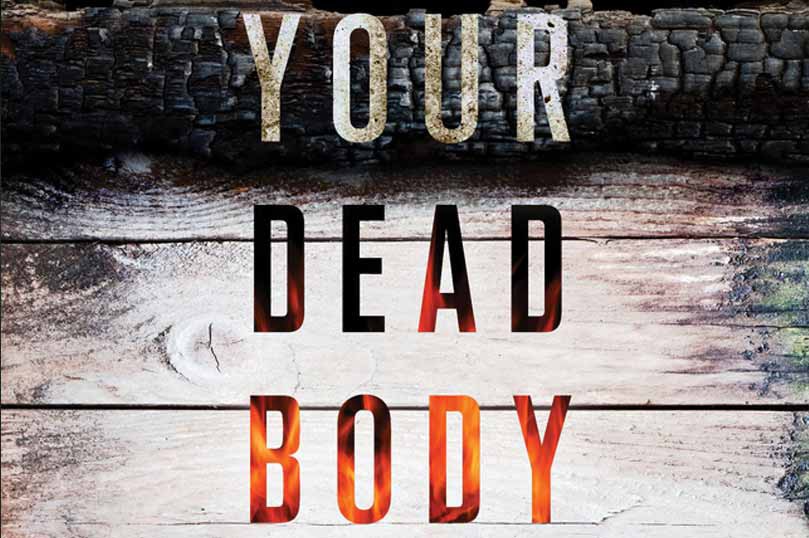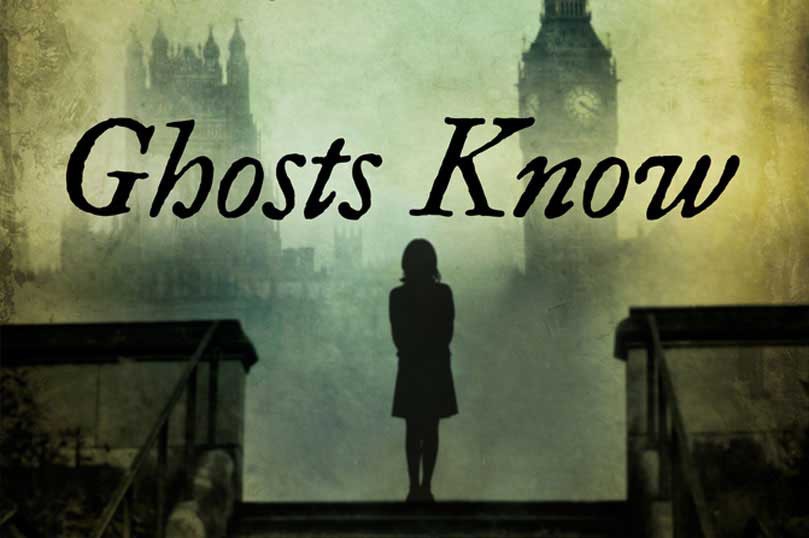OUR TIME HAS COME……AGAIN!
What time is that, you ask? The time of October, which means Fall, which means…HALLOWEEN! And yes, we first posted this list LAST Halloween, but we will not be taking questions at this time, thanks.
We’re kicking off the scariest month of the year with some thrilling old, new, and new-in-paperback reads from Tor Publishing Group! Check them out below and let us know which is at the top of your TBR in the comments.
Mordew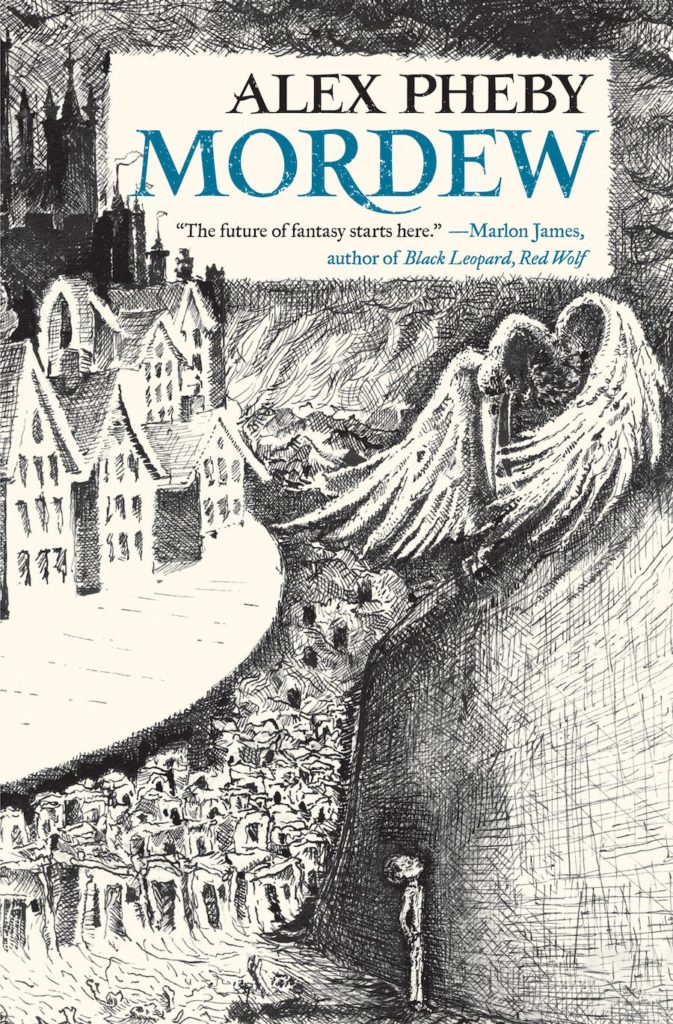 by Alex Pheby
by Alex Pheby
God is dead, his corpse hidden in the catacombs beneath Mordew. In the slums of the sea-battered city, a young boy called Nathan Treeves lives with his parents, eking out a meagre existence by picking treasures from the Living Mud and the half-formed, short-lived creatures it spawns. Until one day his desperate mother sells him to the mysterious Master of Mordew. The Master derives his magical power from feeding on the corpse of God. But Nathan, despite his fear and lowly station, has his own strength—and it is greater than the Master has ever known. So it is that the Master begins to scheme against him—and Nathan has to fight his way through the betrayals, secrets, and vendettas of the city where God was murdered, and darkness reigns.
Book of Night by Holly Black
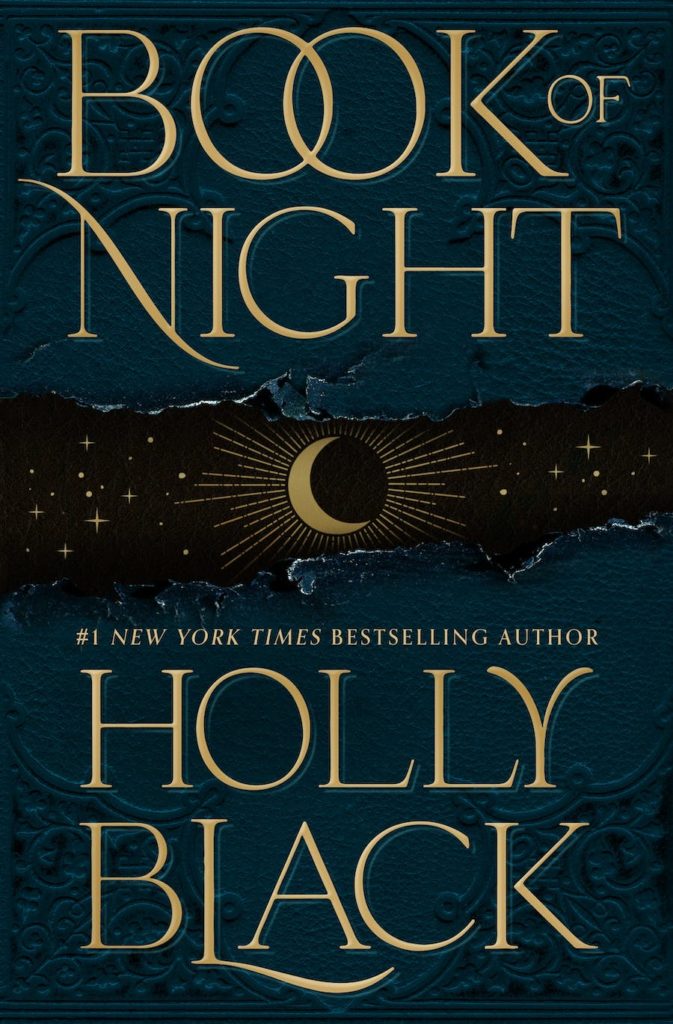 Charlie Hall has never found a lock she couldn’t pick, a book she couldn’t steal, or a bad decision she wouldn’t make. She’s spent half her life working for gloamists, magicians who manipulate shadows to peer into locked rooms, strangle people in their beds, or worse. Gloamists guard their secrets greedily, creating an underground economy of grimoires. And to rob their fellow magicians, they need Charlie Hall. Now, she’s trying to distance herself from past mistakes, but getting out isn’t easy. Bartending at a dive, she’s still entirely too close to the corrupt underbelly of the Berkshires. Not to mention that her sister Posey is desperate for magic, and that Charlie’s shadowless, and possibly soulless, boyfriend has been hiding things from her. When a terrible figure from her past returns, Charlie descends into a maelstrom of murder and lies. Determined to survive, she’s up against a cast of doppelgangers, mercurial billionaires, gloamists, and the people she loves best in the world—all trying to steal a secret that will give them vast and terrible power.
Charlie Hall has never found a lock she couldn’t pick, a book she couldn’t steal, or a bad decision she wouldn’t make. She’s spent half her life working for gloamists, magicians who manipulate shadows to peer into locked rooms, strangle people in their beds, or worse. Gloamists guard their secrets greedily, creating an underground economy of grimoires. And to rob their fellow magicians, they need Charlie Hall. Now, she’s trying to distance herself from past mistakes, but getting out isn’t easy. Bartending at a dive, she’s still entirely too close to the corrupt underbelly of the Berkshires. Not to mention that her sister Posey is desperate for magic, and that Charlie’s shadowless, and possibly soulless, boyfriend has been hiding things from her. When a terrible figure from her past returns, Charlie descends into a maelstrom of murder and lies. Determined to survive, she’s up against a cast of doppelgangers, mercurial billionaires, gloamists, and the people she loves best in the world—all trying to steal a secret that will give them vast and terrible power.
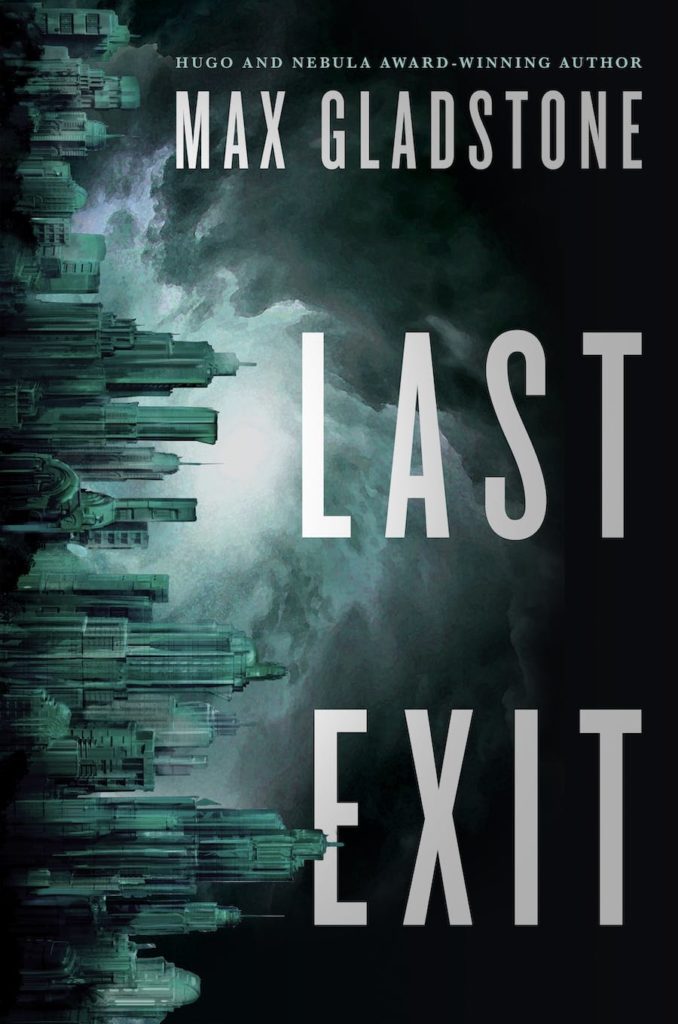 Last Exit by Max Gladstone
Last Exit by Max Gladstone
When Zelda and her friends first met, in college, they believed they had all the answers. They had figured out a big secret about how the world worked and they thought that meant they could change things. They failed. One of their own fell, to darkness and rot.Ten years later, they’ve drifted apart, building lives for themselves, families, fortunes. All but Zelda. She’s still wandering the backroads of the nation. She’s still fighting monsters. She knows: the past isn’t over. It’s not even past.The road’s still there. The rot’s still waiting. They can’t hide from it any more. Because, at long last, their friend is coming home. And hell is coming with her.
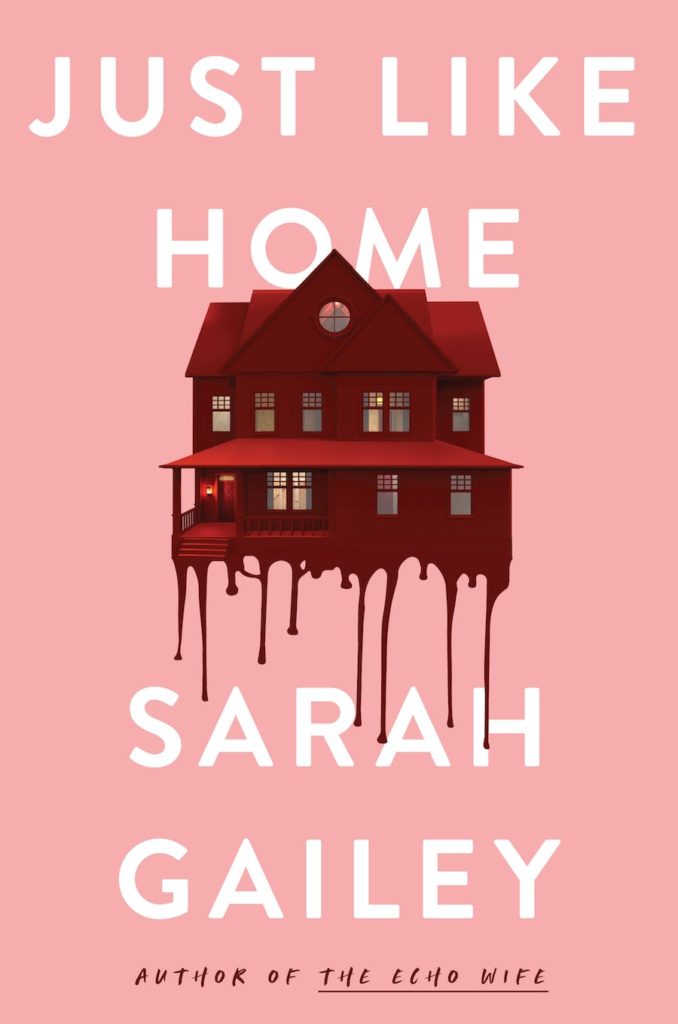 Just Like Home by Sarah Gailey
Just Like Home by Sarah Gailey
“Come home.” Vera’s mother called and Vera obeyed. In spite of their long estrangement, in spite of the memories — she’s come back to the home of a serial killer. Back to face the love she had for her father and the bodies he buried there, beneath the house he’d built for his family. Coming home is hard enough for Vera, and to make things worse, she and her mother aren’t alone. A parasitic artist has moved into the guest house out back and is slowly stripping Vera’s childhood for spare parts. He insists that he isn’t the one leaving notes around the house in her father’s handwriting… but who else could it possibly be? There are secrets yet undiscovered in the foundations of the notorious Crowder House. Vera must face them and find out for herself just how deep the rot goes.
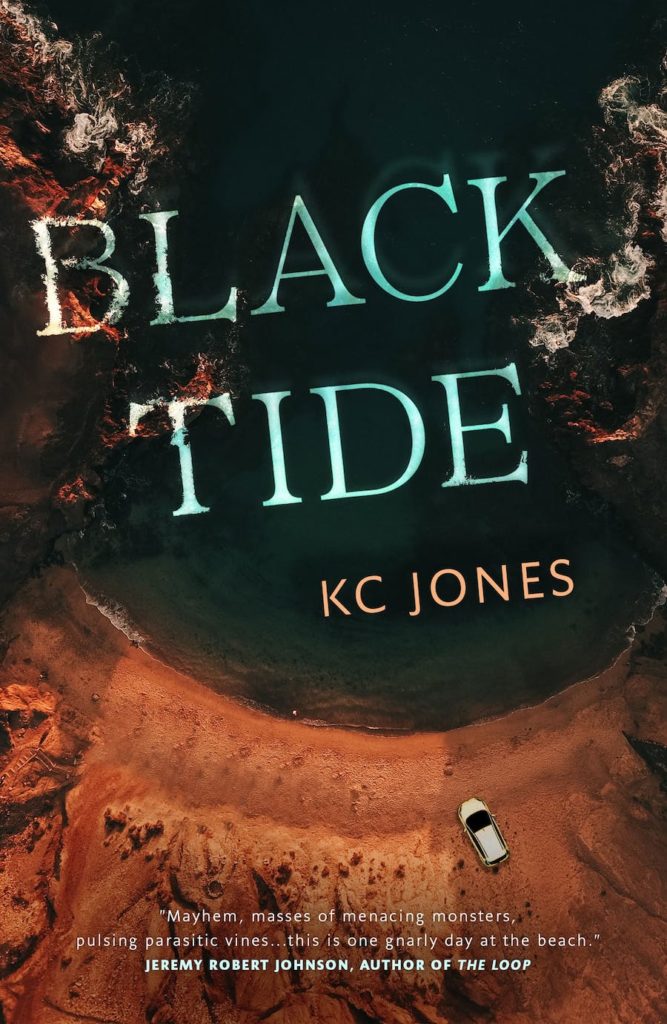 Black Tide by KC Jones
Black Tide by KC Jones
It was just another day at the beach. Then the world ended. Mike and Beth were strangers before the night of the meteor shower. Chance made them neighbors, a bottle of champagne brought them together, and a shared need for human connection sparked something more. Following their drunken and desperate one-night stand, the two discover the astronomical event has left widespread destruction in its wake. But the cosmic lightshow was only part of something much bigger, and far more terrifying. When a lost car key leaves them stranded on an empty stretch of Oregon coast and inhuman screams echo from the dunes, when the rising tide reaches for their car and unspeakable horrors close in around them, these two self-destructive souls must fight to survive a nightmare of apocalyptic scale.
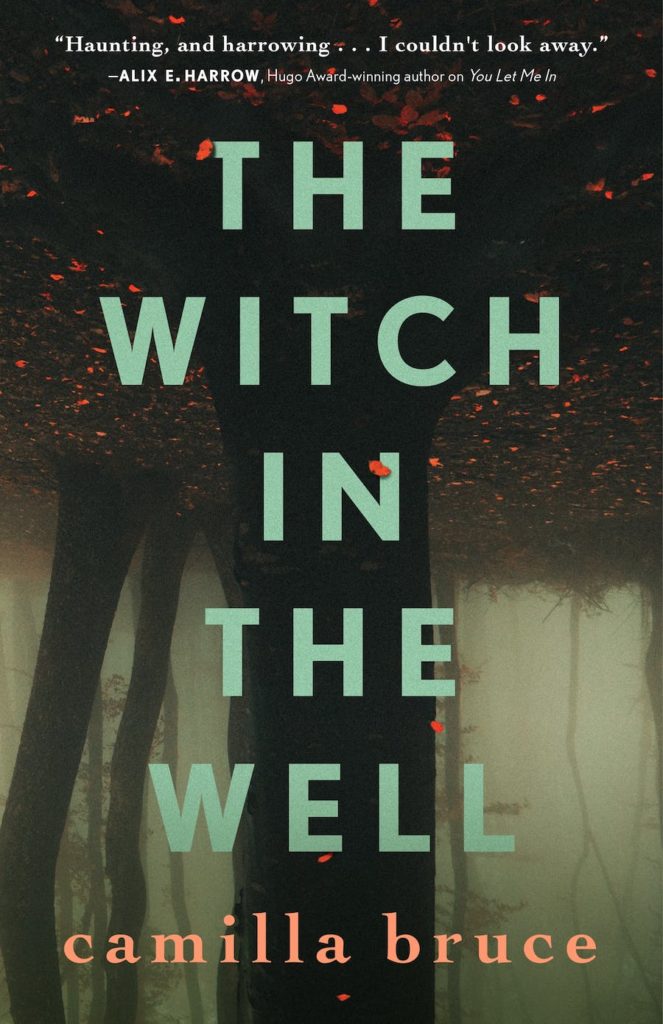 The Witch in the Well by Camilla Bruce
The Witch in the Well by Camilla Bruce
When two former friends reunite after decades apart, their grudges, flawed ambitions, and shared obsession swirl into an all-too-real echo of a terrible town legend. Centuries ago, beautiful young Ilsbeth Clark was accused of witchcraft after several children disappeared. Her acquittal did nothing to stop her fellow townsfolk from drowning her in the well where the missing children were last seen. When author and social media influencer Elena returns to the summer paradise of her youth to get her family’s manor house ready to sell, the last thing she expected was connecting with—and feeling inspired to write about—Ilsbeth’s infamous spirit. The very historical figure that her ex-childhood friend, Cathy, has been diligently researching and writing about for years. What begins as a fiercely competitive sense of ownership over Ilsbeth and her story soon turns both women’s worlds into something more haunted and dangerous than they could ever imagine.
The Echo Wife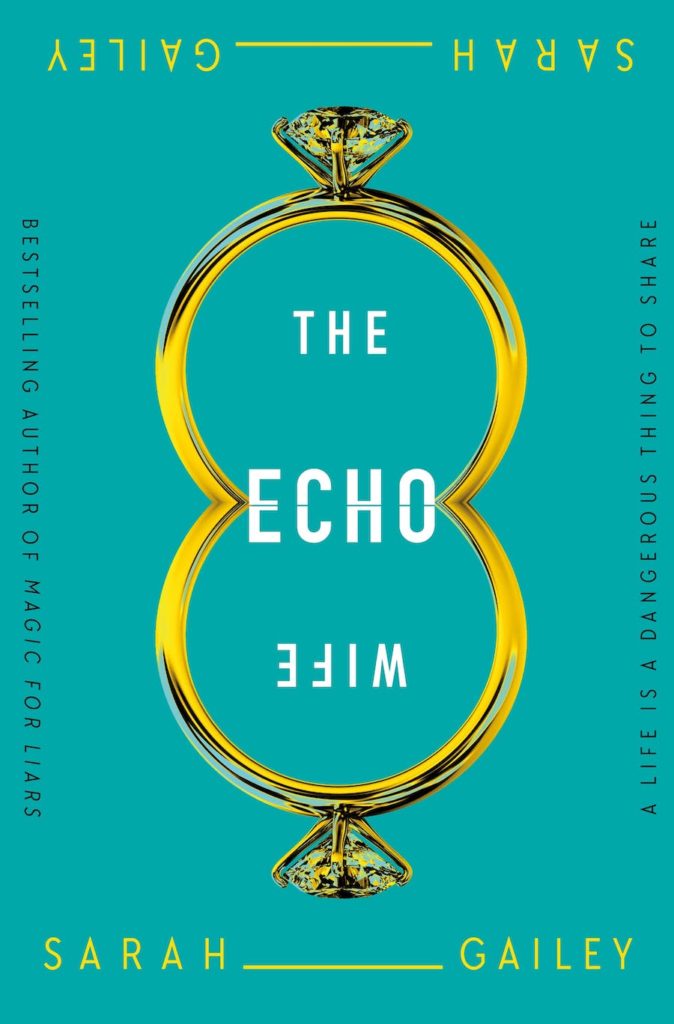 by Sarah Gailey
by Sarah Gailey
“I’m embarrassed, still, by how long it took me to notice. Everything was right there in the open, right there in front of me, but it still took me so long to see the person I had married. It took me so long to hate him.” Martine is a genetically cloned replica made from Evelyn Caldwell’s award-winning research. She’s patient and gentle and obedient. She’s everything Evelyn swore she’d never be. And she’s having an affair with Evelyn’s husband. Now, the cheating bastard is dead, and both Caldwell wives have a mess to clean up. Good thing Evelyn Caldwell is used to getting her hands dirty.
You Let Me In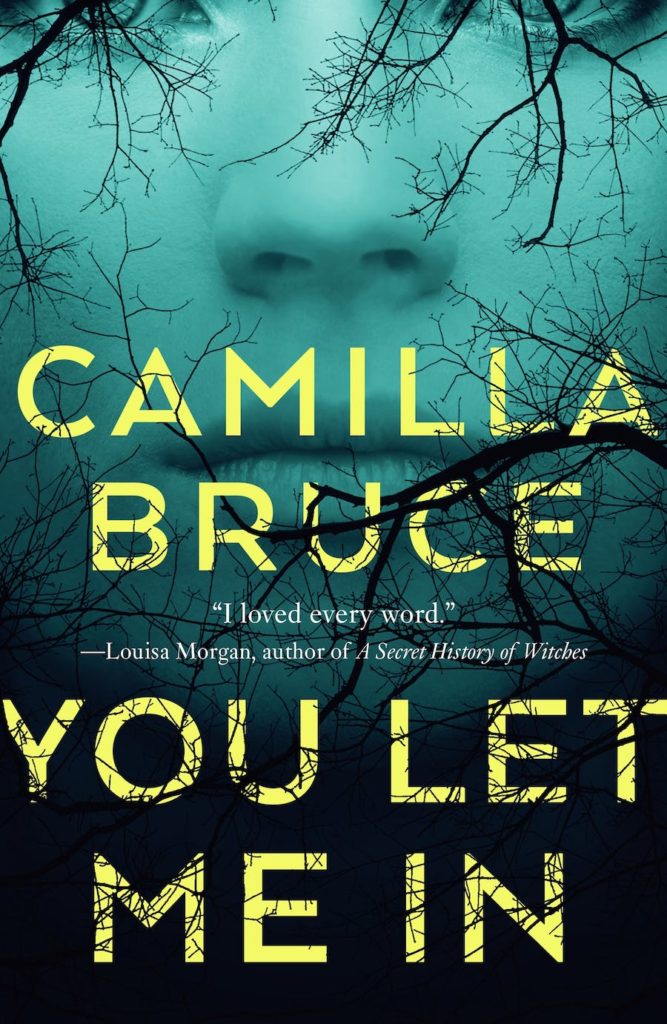 by Camilla Bruce
by Camilla Bruce
Cassandra Tipp is dead…or is she? After all, the notorious recluse and eccentric bestselling novelist has always been prone to flights of fancy—everyone in town remembers the shocking events leading up to Cassie’s infamous trial (she may have been acquitted, but the insanity defense only stretches so far). Cassandra Tipp has left behind no body—just her massive fortune, and one final manuscript. Then again, there are enough bodies in her past—her husband Tommy Tipp, whose mysterious disembowelment has never been solved, and a few years later, the shocking murder-suicide of her father and brother. Cassandra Tipp will tell you a story—but it will come with a terrible price. What really happened, out there in the woods—and who has Cassie been protecting all along? Read on, if you dare…Get it in paperback now!
Certain Dark Things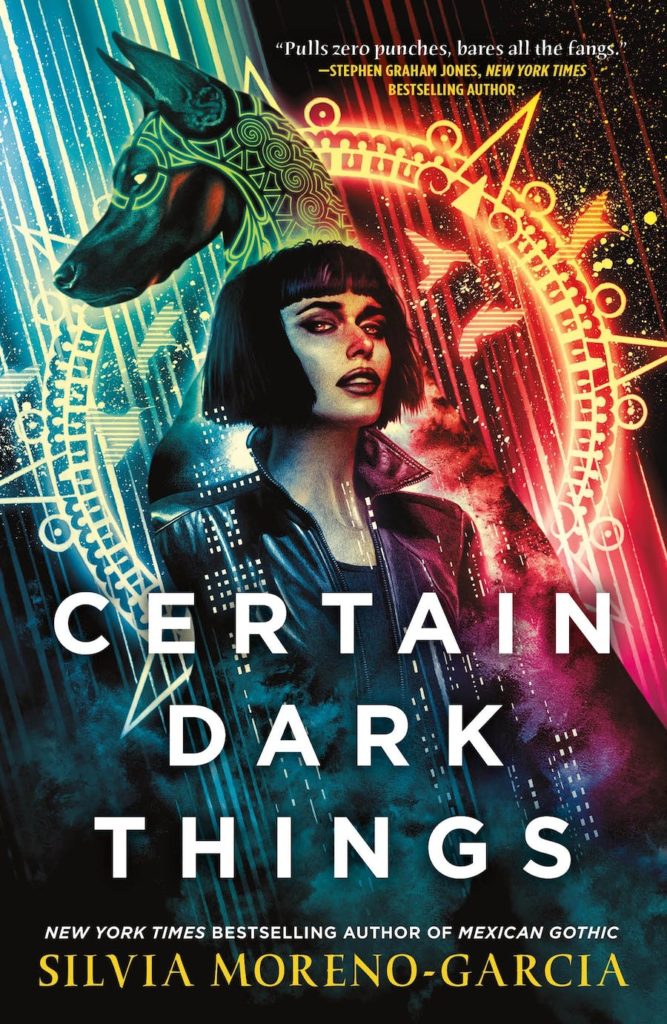 by Silvia Moreno-Garcia
by Silvia Moreno-Garcia
Welcome to Mexico City, an oasis in a sea of vampires. Domingo, a lonely garbage-collecting street kid, is just trying to survive its heavily policed streets when a jaded vampire on the run swoops into his life. Atl, the descendant of Aztec blood drinkers, is smart, beautiful, and dangerous. Domingo is mesmerized. Atl needs to quickly escape the city, far from the rival narco-vampire clan relentlessly pursuing her. Her plan doesn’t include Domingo, but little by little, Atl finds herself warming up to the scrappy young man and his undeniable charm. Vampires, humans, cops, and criminals collide in the dark streets of Mexico City. Do Atl and Domingo even stand a chance of making it out alive? Or will the city devour them all?
Slewfoot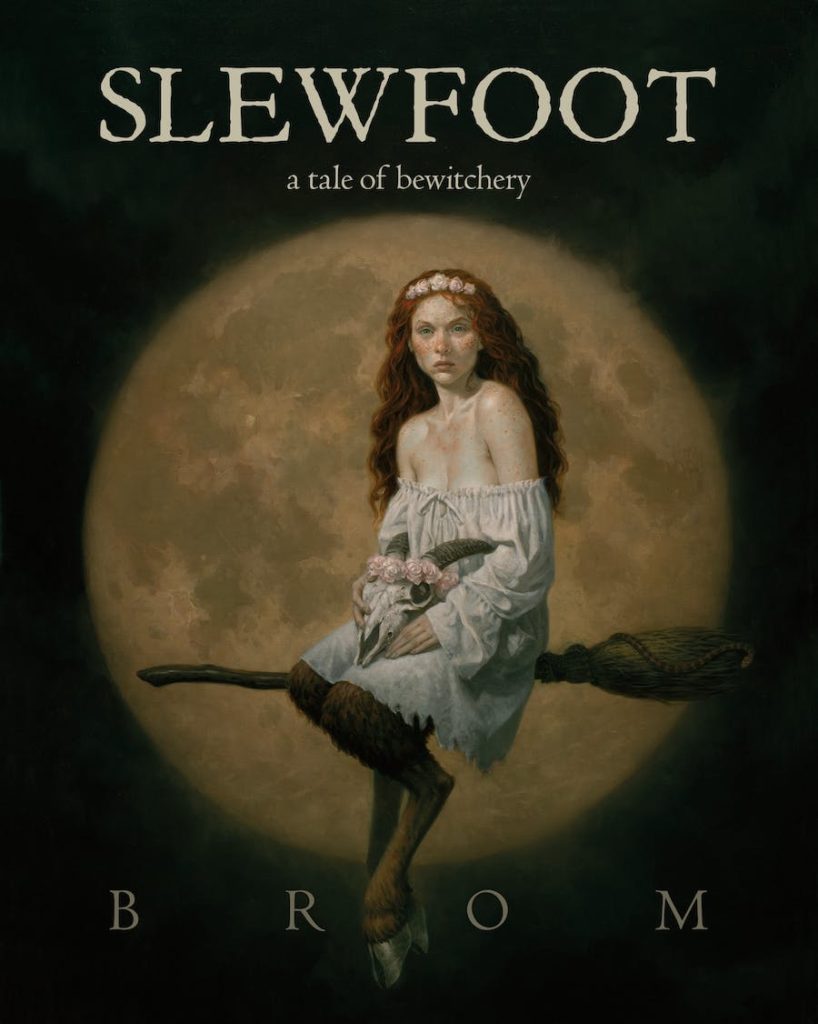 by Brom
by Brom
Connecticut, 1666. An ancient spirit awakens in a dark wood. The wildfolk call him Father, slayer, protector. The colonists call him Slewfoot, demon, devil. To Abitha, a recently widowed outcast, alone and vulnerable in her pious village, he is the only one she can turn to for help.mTogether, they ignite a battle between pagan and Puritan – one that threatens to destroy the entire village, leaving nothing but ashes and bloodshed in their wake. “If it is a devil you seek, then it is a devil you shall have!” This terrifying tale of bewitchery features more than two dozen of Brom’s haunting paintings, fully immersing readers in this wild and unforgiving world.
The Last House on Needless Street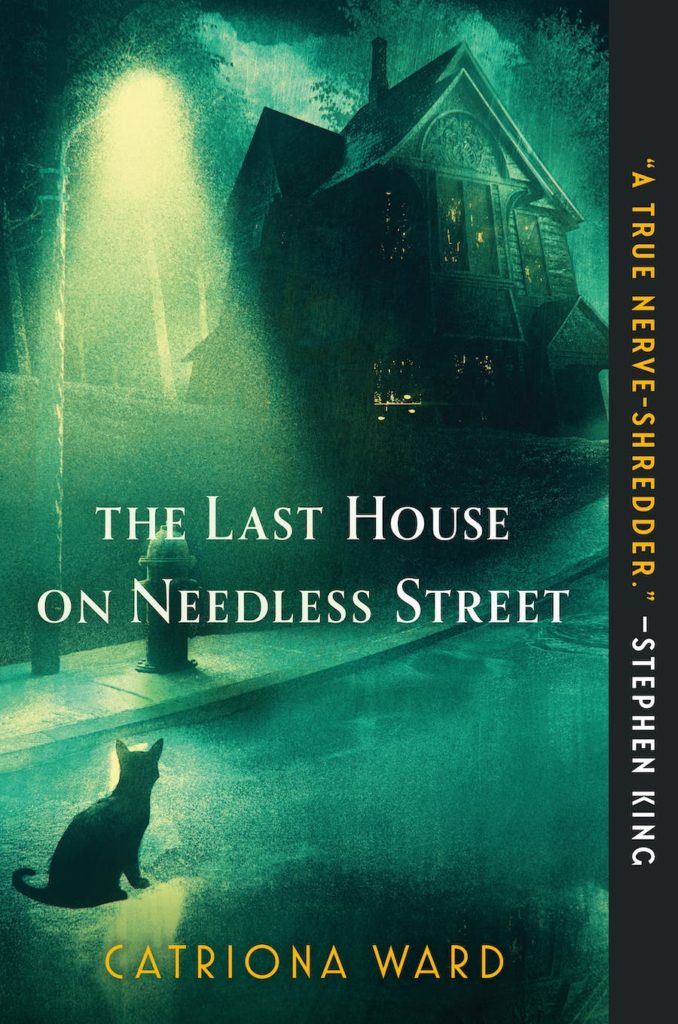 by Catriona Ward
by Catriona Ward
In a boarded-up house on a dead-end street at the edge of the wild Washington woods lives a family of three. A teenage girl who isn’t allowed outside, not after last time. A man who drinks alone in front of his TV, trying to ignore the gaps in his memory. And a house cat who loves napping and reading the Bible. An unspeakable secret binds them together, but when a new neighbor moves in next door, what is buried out among the birch trees may come back to haunt them all.
HEX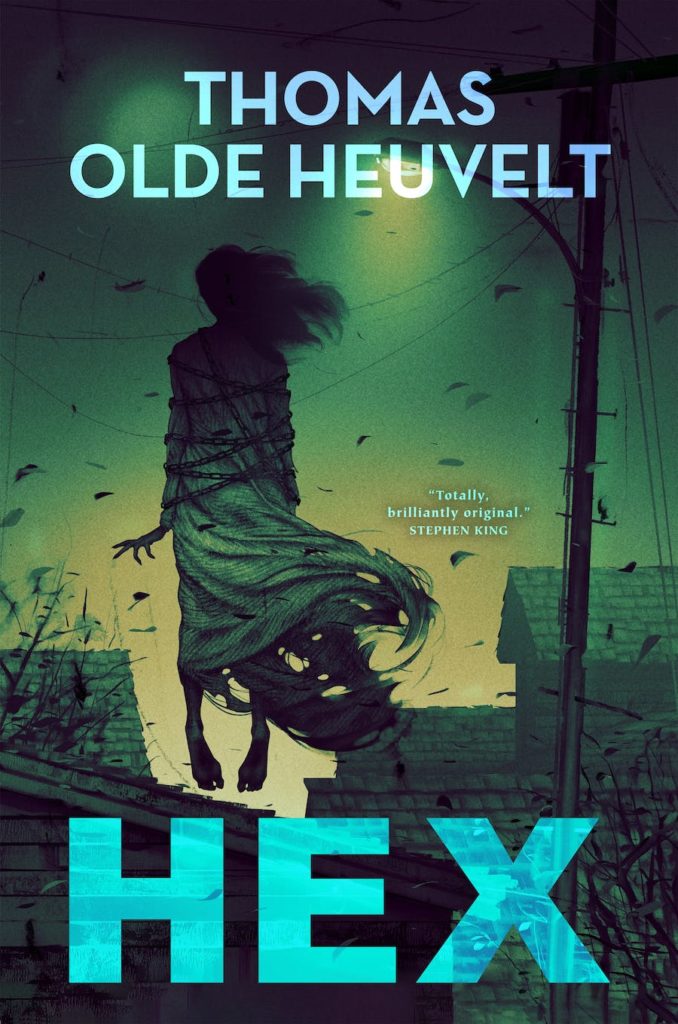 by Thomas Olde Heuvelt
by Thomas Olde Heuvelt
Welcome to Black Spring, the seemingly picturesque Hudson Valley town haunted by the Black Rock Witch, a seventeenth century woman whose eyes and mouth are sewn shut. Muzzled, she walks the streets and enters homes at will. Everybody knows that her eyes may never be opened or the consequences will be too terrible to bear. The elders of Black Spring have virtually quarantined the town by using high-tech surveillance to prevent their curse from spreading. Frustrated with being kept in lockdown, the town’s teenagers decide to break their strict regulations and go viral with the haunting. But, in so doing, they send the town spiraling into dark, medieval practices of the distant past.
The Living Dead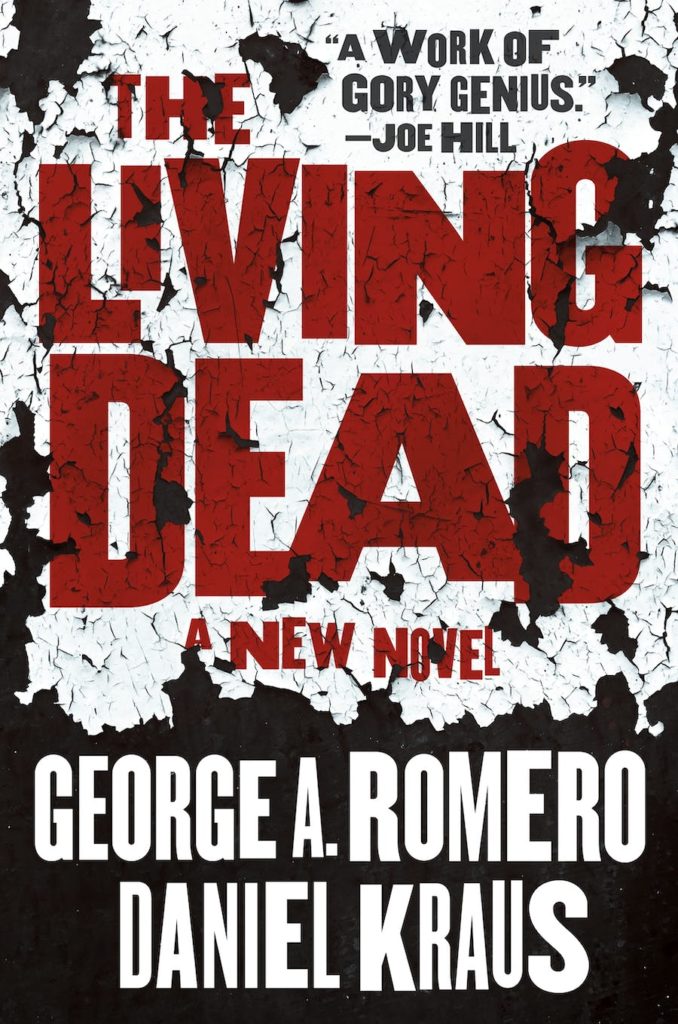 by George A. Romero and Daniel Kraus
by George A. Romero and Daniel Kraus
It begins with one body. A pair of medical examiners find themselves battling a dead man who won’t stay dead. It spreads quickly. In a Midwestern trailer park, a Black teenage girl and a Muslim immigrant battle newly-risen friends and family. On a US aircraft carrier, living sailors hide from dead ones while a fanatic makes a new religion out of death. At a cable news station, a surviving anchor keeps broadcasting while his undead colleagues try to devour him. In DC, an autistic federal employee charts the outbreak, preserving data for a future that may never come. Everywhere, people are targeted by both the living and the dead. We think we know how this story ends. We. Are. Wrong.
Nothing But Blackened Teeth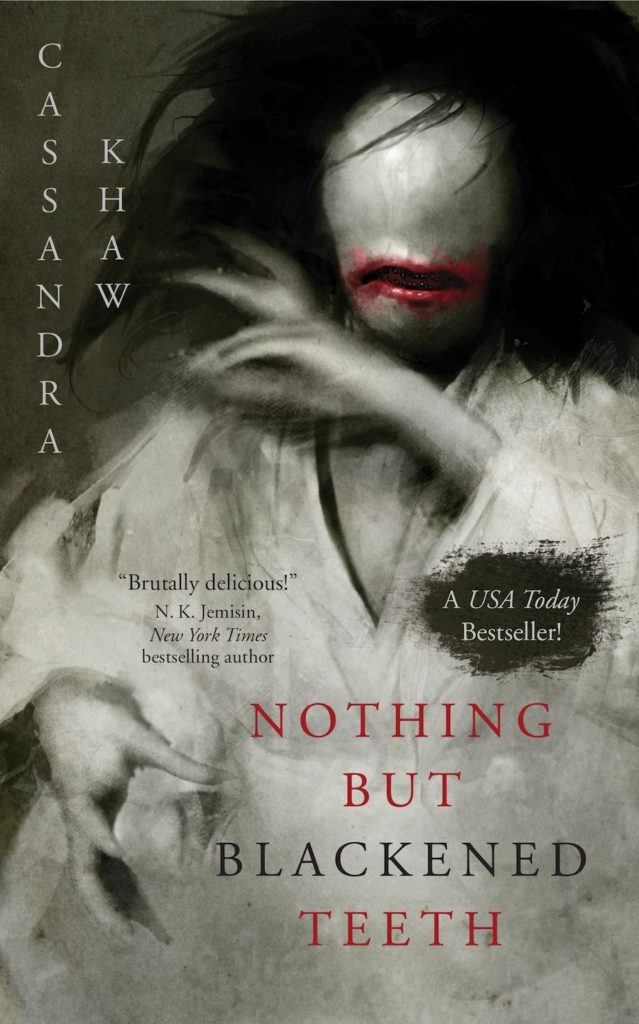 by Cassandra Khaw
by Cassandra Khaw
A Heian-era mansion stands abandoned, its foundations resting on the bones of a bride and its walls packed with the remains of the girls sacrificed to keep her company. It’s the perfect venue for a group of thrill-seeking friends, brought back together to celebrate a wedding. A night of food, drinks, and games quickly spirals into a nightmare as secrets get dragged out and relationships are tested. But the house has secrets too. Lurking in the shadows is the ghost bride with a black smile and a hungry heart. And she gets lonely down there in the dirt.

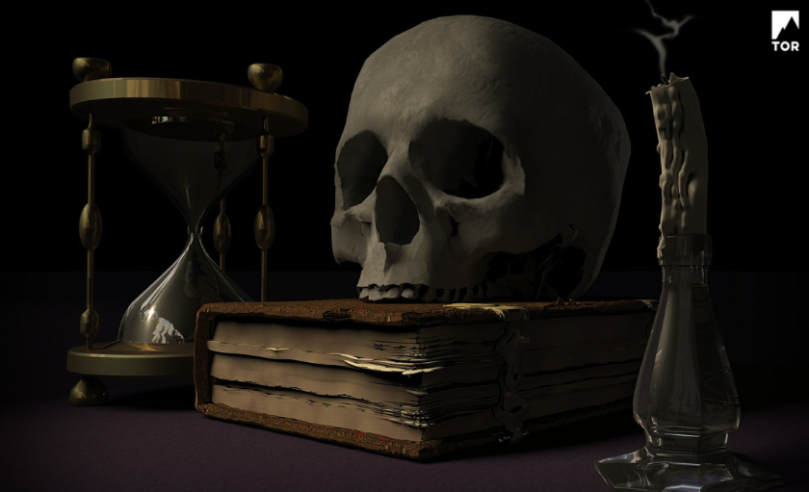
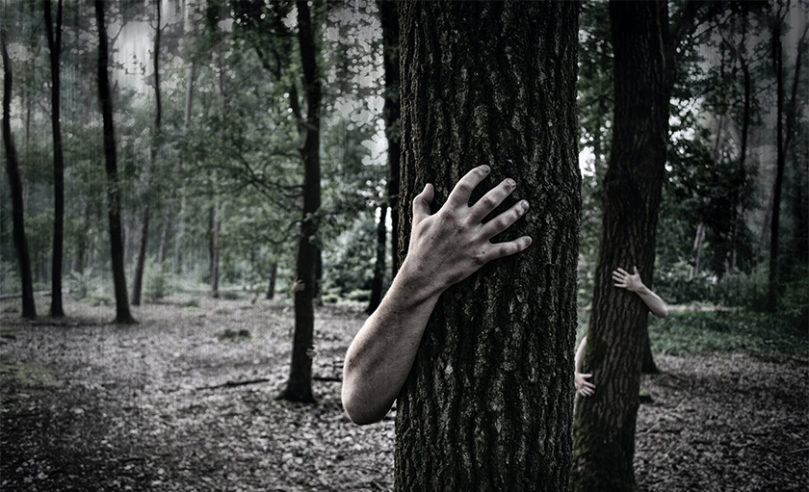
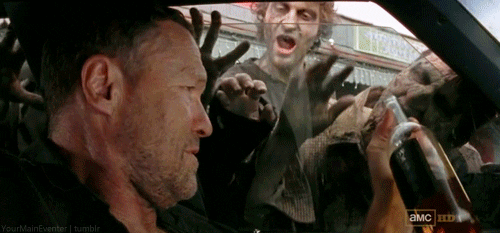
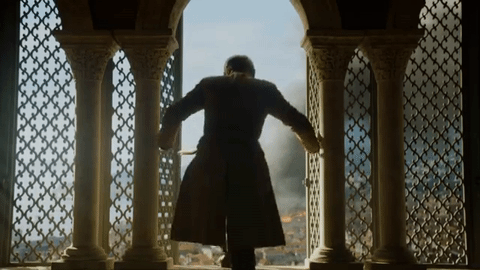


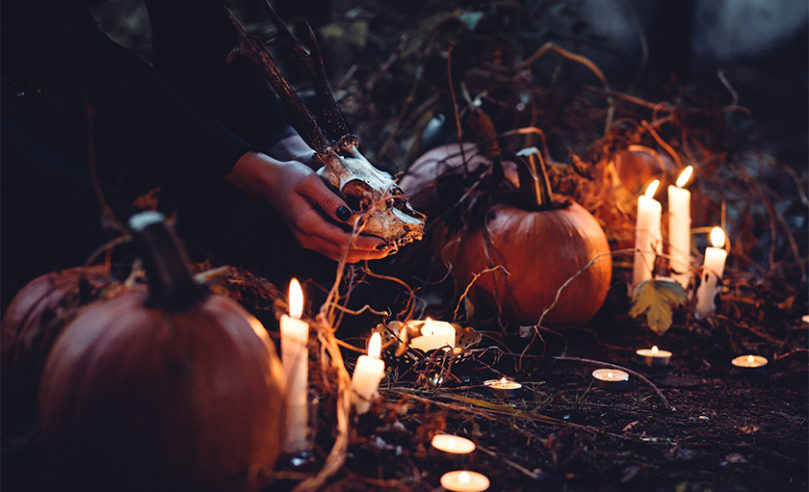
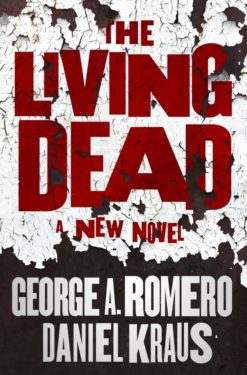
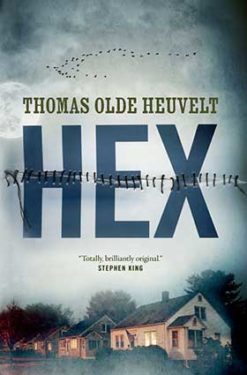 HEX
HEX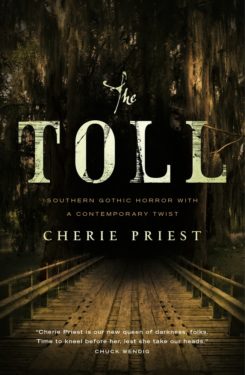 The Toll
The Toll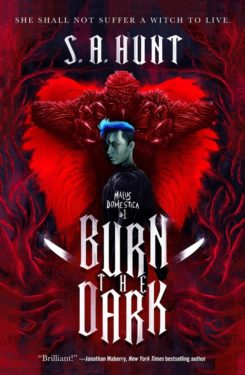 Burn the Dark
Burn the Dark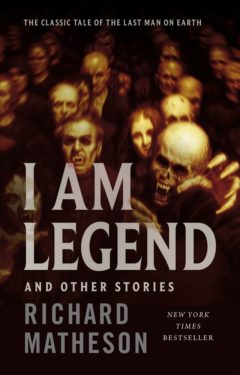 I Am Legend
I Am Legend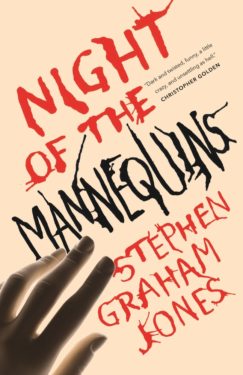 Night of the Mannequins
Night of the Mannequins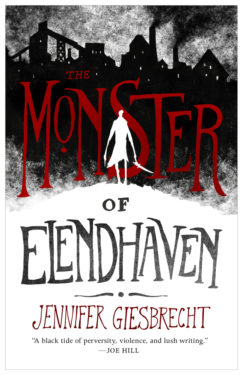 The Monster of Elendhaven
The Monster of Elendhaven